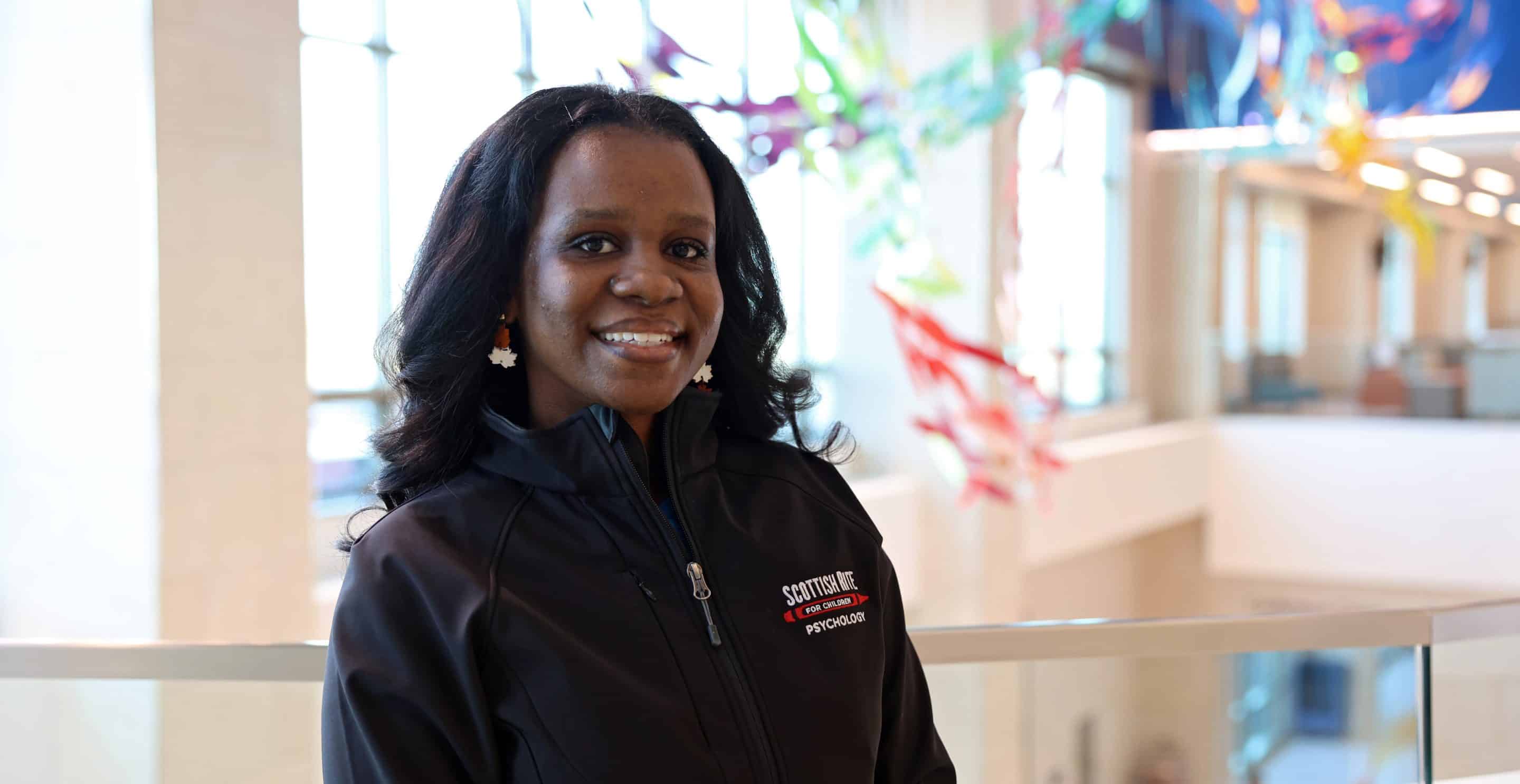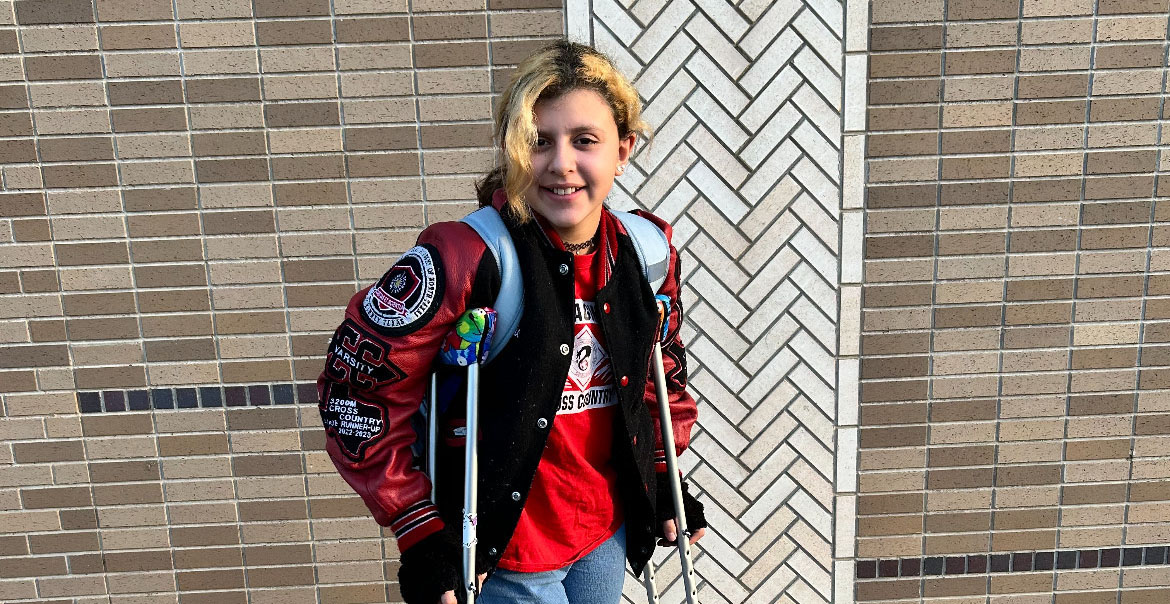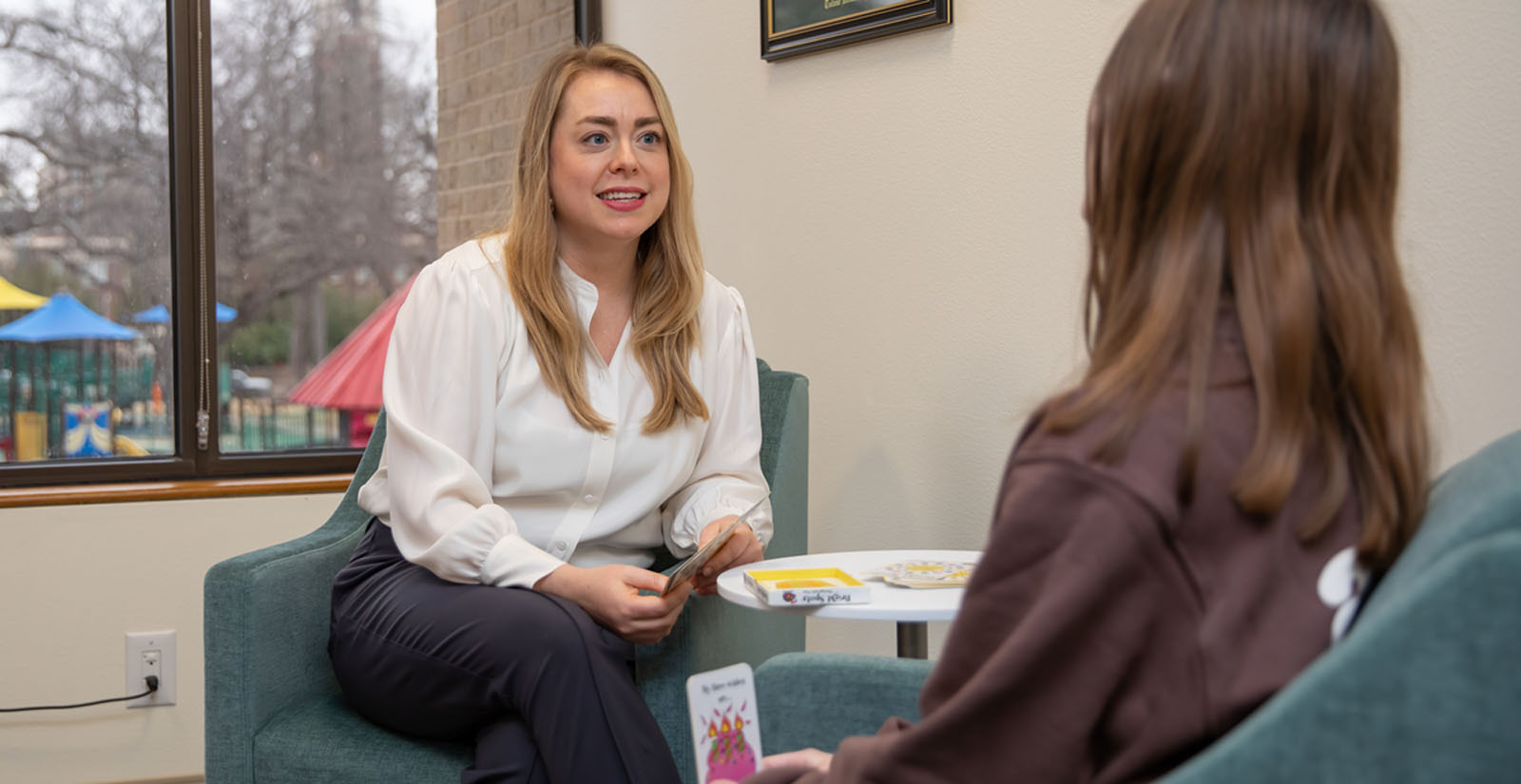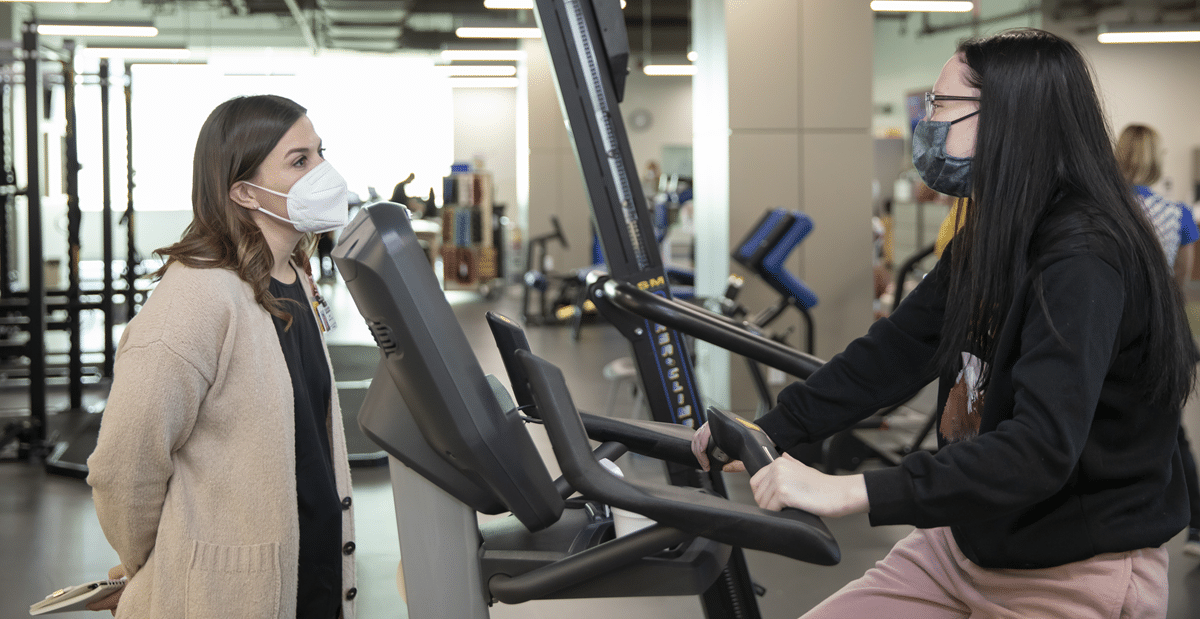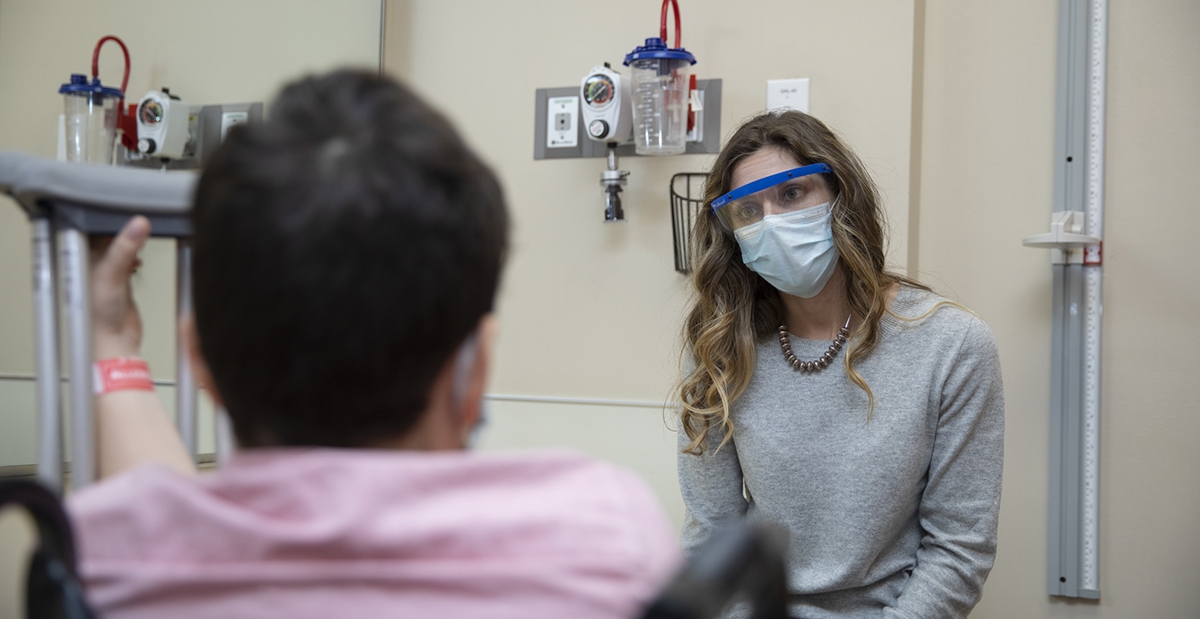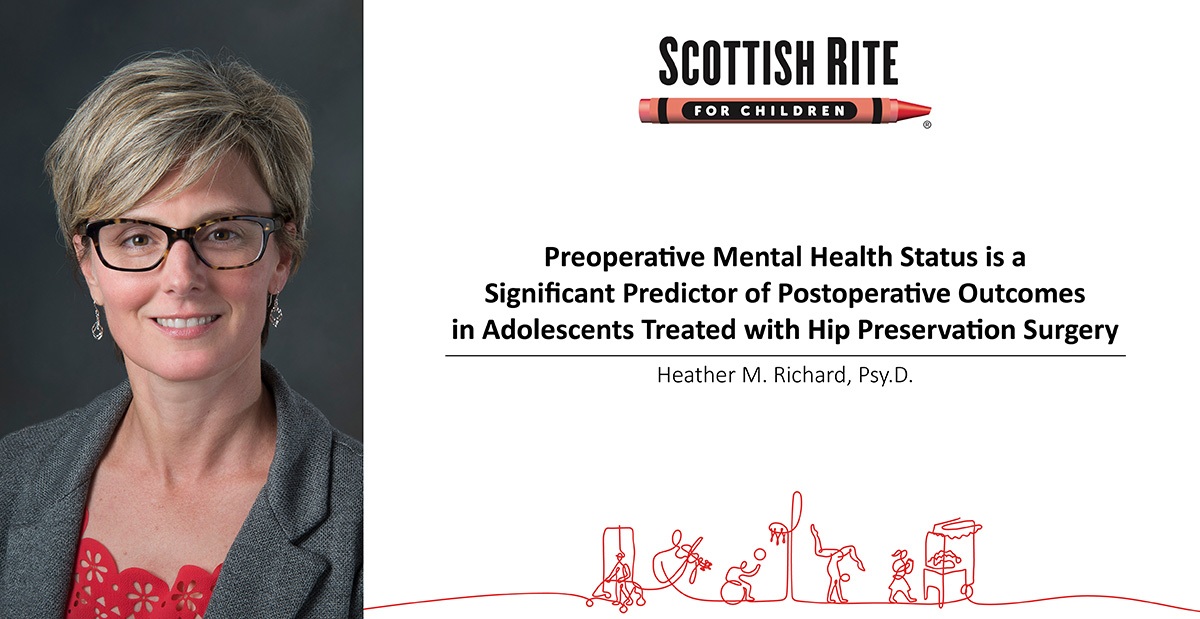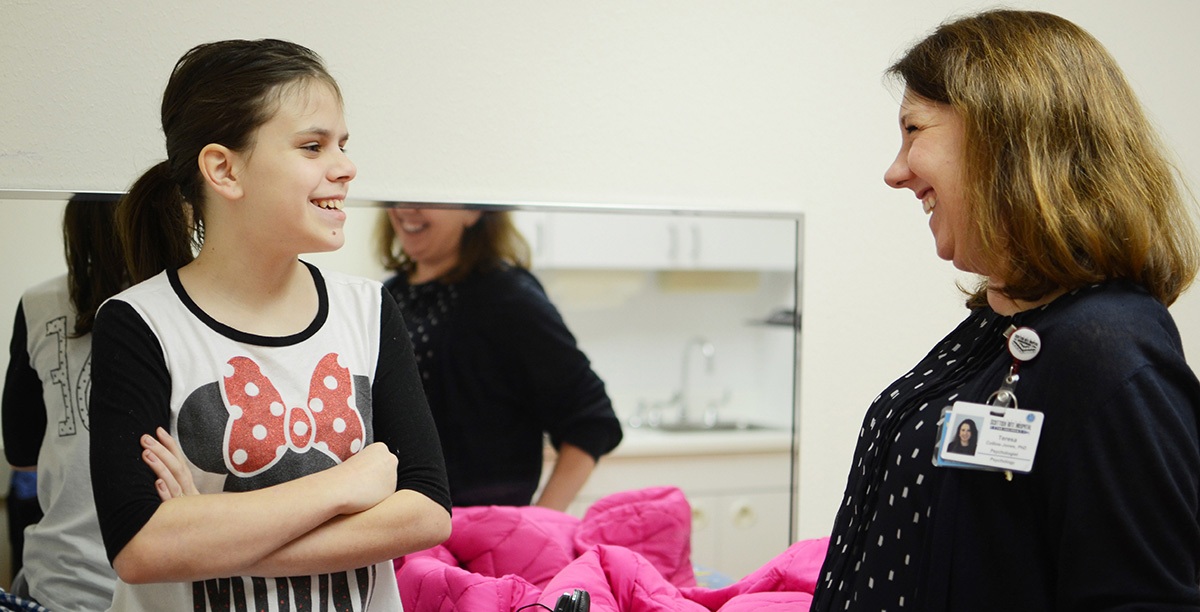Psychology
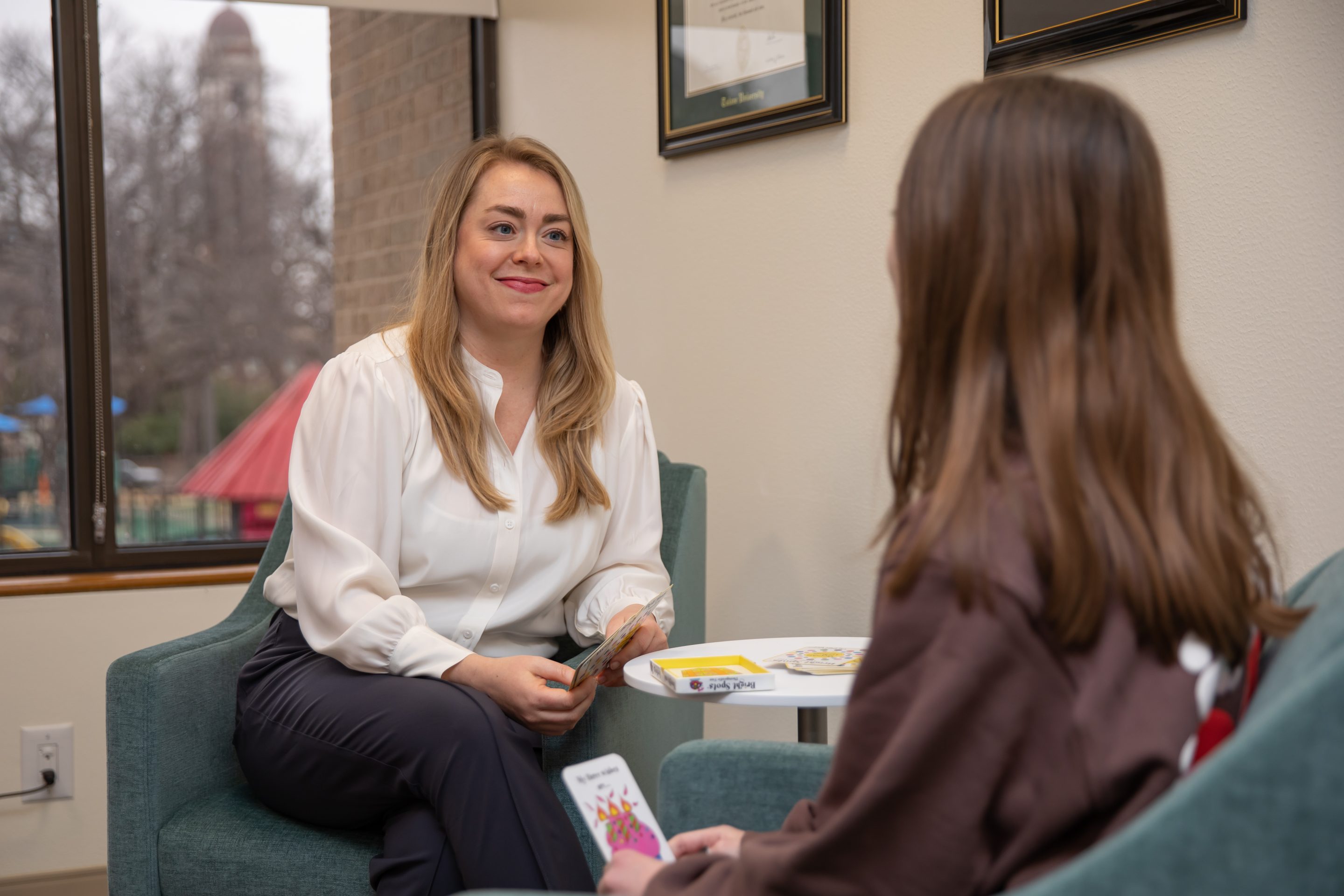
Psychology
Our Psychology department includes formally trained and licensed pediatric psychologists who are focused on promoting the health and well-being of children and adolescents with chronic illnesses or complex medical conditions. Our team applies their training as clinical health psychologists to the physical, social and emotional needs of pediatric patients. Direct clinical inpatient and outpatient services are provided to Scottish Rite patients, along with their families and caregivers. We also have a team of dedicated mental health navigators whose primary role is managing our screening and response processes for patients at risk of self-harm. While our psychologists are primarily involved in clinical care, they also contribute to research and provide training to future pediatric psychologists, medical trainees and allied health professionals.
ABOUT OUR PSYCHOLOGY SERVICES
As integrated members of the multidisciplinary medical team, our pediatric psychologists are involved in many aspects of patient care including:
- Medical decision-making
- Pain management
- Stress management
- Surgery education and preparation
- Behavioral intervention for procedural distress
- Evaluation of surgical readiness
- Post-surgery recovery and rehabilitation
- Improving compliance with treatment
- Evaluation and acute management of risk and safety concerns
- For young athletes, our team helps with return to play, rehabilitation adherence and pain management
Our Psychologists also help patients and families:
- Cope with diagnoses and treatment
- Identify co-occurring mental health needs and appropriate treatment in the community
- Navigate school and academic concerns related to their medical needs
As trained scientist-practitioners, our psychologists are actively involved in research that explores:
- The psychosocial impact of physical health conditions and treatment
- Ways to improve the treatment experience
They regularly share research findings at state, national and international conferences and publish in leading professional journals. Through research, they aim to advance psychosocial care within pediatric orthopedics, rheumatology, neurology and psychology.
Our Psychology department offers a postdoctoral training opportunity in pediatric psychology. Learn more about our Pediatric Postdoctoral Psychology Fellowship.
Experiencing suicidal thinking can be a scary experience. Talking with others about suicidal thoughts can be challenging, as well. Talking about suicide does not increase a person's likelihood to have or act on such thoughts. In fact, seeking support and talking about suicide can have a positive effect on the person who is experiencing it. Please seek support right away if you believe the danger is immediate and as soon as possible if you are struggling with suicidal thoughts. Use the resources on this card as a guide to help you.
If you or someone you know may be a danger to themselves or someone else:
- Go to the nearest emergency room
- Call 911
Thinking About Suicide? Please Call: Local Crisis Hotlines Available 24/7
National Suicide Prevention Lifeline Call: 988
suicidepreventionlifeline.org
Crisis Text Line
Text ’HOME’ to 741741 free 24/7 crisistextline.org
The Trevor Project (LGBTQ suicide help)
- Call: 866-488-7386
- Text: 202-304-1200
- Trevor Project online chat: thetrevorproject.org/get-help-now
Texas Health and Human Services Call: 211, Option 8 • 211texas.org
Latest news: Psychology
Two Fellows Begin Training in Pediatric Psychology Postdoctoral Fellowship
The Pediatric Psychology Postdoctoral Fellowship program proudly welcomes two fellows, marking the first time the program has hosted multiple fellows since its inception. The 2025 – 2026 fellows are Paige Mandas, Ph.D.,…
Get to Know Our Staff: Marida Williams, Psychology
What is your job title/your role at Scottish Rite? I am a mental health navigator for the Psychology department. I assess patients’ mental health risk through consultations and interventions to provide families…
Miles of Motivation: Alice Races Ahead of AMPS
12-year-old Alice is racing towards her dreams, confidently managing each day and creating her own path! With a passion for running, she participates in cross country for her school and the Amateur…
Modern Luxury: Champions for Change
Scottish Rite for Children is leading the charge to ensure that children’s mental health is top of mind. By. Abra Garrett In 2021, the American Academy of Pediatrics, the American Academy of…
Ten Ways To Manage Pain Without Medication
Whether following an injury or a surgery, pain management is an important factor in many orthopedic conditions. Our psychology experts provide our patients with the necessary techniques and skills to manage their…
Fear-Avoidance in Athletes
What is Fear-Avoidance? Athletes who experience an injury often struggle with fear-avoidance once they are physically cleared to return to sports. Out of fear of pain or injury, fear-avoidance is when a…
D Magazine: What Is the Pandemic Doing to Our Kids?
The pandemic has posed unprecedented challenges for everyone, especially the youngest members of our community. Scottish Rite for Children Psychologist Whitney Herge, Ph.D. spoke with D Magazine about how the pandemic has changed the way we…
The Importance of Caring for the Whole Child
At Scottish Rite for Children, our mission is to provide the best and most innovative care. Through ongoing research, our experts are able to give treatment options for a child’s condition, whether…
D Magazine: Scottish Rite for Children is Studying the Impact of the Pandemic on Children and Young Adults
Researchers at Scottish Rite for Children are looking into the impact of the pandemic on kids, teenagers and adults. One study is analyzing current and former patients 18 years of age or older,…
CultureMap Dallas: Top Texas Pediatric Hospital on Why Pain Management for Kids Matters
Scottish Rite Hospital is committed to treating the whole child - mind, body and spirit. As integrated members of the hospital\'s orthopedic team, our psychologists play an important role before, during and…








